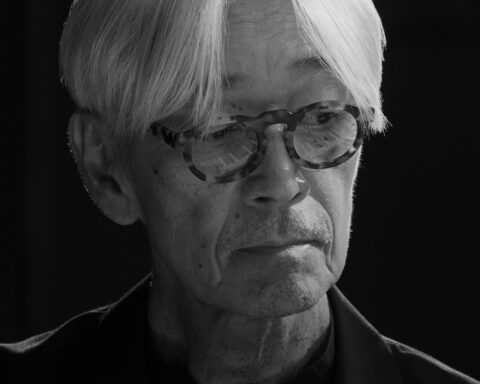Born To Be
(USA, 92 min.)
Dir. Tania Cypriano
In 2015, New York became one of the first states in the U.S. to mandate that insurance companies were obligated to cover the cost of health services related to the transgender community. Tania Cypriano’s sympathetic yet journalistically precise film Born to Be looks at the ramifications of this ruling, the real-world effect it’s having on members of the community and the medical establishment,.
We meet Dr. Jess Ting, a non-threatening, soft-spoken man moving between exam rooms in his white lab coat and rimmed glasses, almost gliding between appointments Ting is a remarkable subject; a former Julliard string bass student, he gave up a dream of being the best at his instrument to take on becoming the best plastic surgeon in New York.
One can easily see the correlation between his drive to perfect a Bach piece and his push to make procedures all the more effective. For Ting, it’s driven not by a sense of perfectionism but a desire to constantly tweak and improve in an on-going effort to come close to being the best.
Ting’s trade involves surgical alteration of patients to remove body parts that do not match how they see or feel themselves to be. He either focuses on the top – breast removal or augmentation – or the bottom, where both vaginoplasty and phalloplasty transform the genitalia of these patients permanently.
These are expensive, invasive procedures, but Ting and his staff at New York’s Mount Sinai hospital have created a specific ward where the consultations, preparations and logistical elements are all committed to the process of gender confirmation surgery. We meet a number of patients from various backgrounds who share their stories and experiences, giving face to those who for many decades were hidden in the shadows, looking to black markets and alternative methods that often had disastrous consequences. Thanks to Ting and his team, there’s now a safe, regulated and increasingly effective surgical method to provide these individuals with a safe road to gender reassignment.
Yet the film is not simply a look at Dr. Ting and his team’s laudable successes. There are patients to be considered. While some take the changes with a sense of relief, others are left still struggling with many of the pent up issues they had pre-surgery. As the film makes clear, these fears and anxieties took many years to develop, so it’s not as if in all cases what takes place in the hospital will solve every problem.
Similarly, we see how stretched the clinic is, with long waiting lists and frustrated patients forced to go through a gauntlet of tests and consultations. There’s real tension at play, and while Ting’s work is at the forefront, he does not have an army of fellow surgeons following his lead. The balance between providing individual care and treating the greatest number of people possible is constant, and the ramifications for delay sometimes fatal.
It’s the stories of the patients that are the most moving and complex in the film, with some sharing their decades-long quest to have the reassignment surgery take place, and others who are quite young and impatient, wanting it even sooner than law allows. There’s a tension always at play, and the film refuses to sugarcoat the real implications, both positive and negative, that surround the patients and their stories.
Cypriano’s doc provides unique access both to the community affected and the doctors and support staff that conduct these surgeries, resulting in a well-rounded, deep examination of the positives and frustrations of gender reassignment. With moments of sadness, joy and even comedy (often inadvertent), the film is both emotionally and intellectually stimulating. Cypriano’s vérité camerawork is never intrusive, managing to capture in remarkable detail life in Ting’s clinic.
Born to Be is a film filled with interesting characters, fascinating scientific progress, deeply provocative moral questions and provides a look inside a system that’s balancing the needs of the patients with the care and craft required to make sure things proceed in an orderly fashion. The end result is a film that both fascinates and educates, shining a light on a community and their challenges, which have been too long left in the dark.
Born to Be premiered at the 2019 New York Film Festival.










